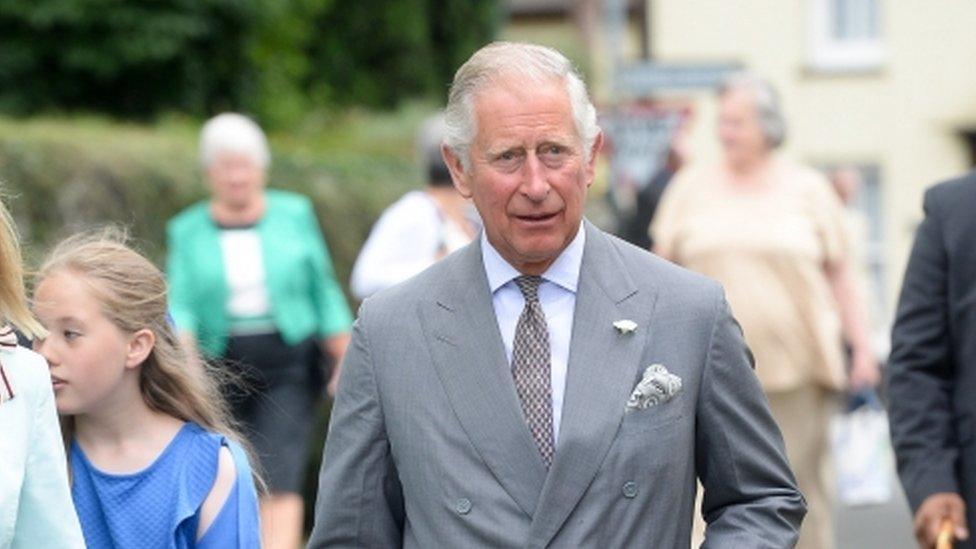King Charles III: How will new monarch serve Wales?
- Published
King Charles III was the longest serving Prince of Wales before he became monarch
The longest-serving Prince of Wales in history has become King, and King Charles III has been described as a "Welshophile" by those who know him well.
He has a home in Carmarthenshire, spent time at university in Aberystwyth and is passionate about supporting local businesses, culture and the arts. He also tries to speak Welsh whenever possible.
Last Friday he named Prince William as the new Prince of Wales having held the title himself for more than 64 years.
"The Queen did not have a special relationship with Wales in the same way, obviously, as the Prince of Wales," said Welsh historian Merfyn Jones.
But that relationship has been tested at times.
The investiture of the Prince of Wales in 1969 was described as a "high point of anti-monarchy feeling" in Wales.
Now, he is set to visit Wales for the first time as the King on Friday and will attend a service of prayer and meet First Minister Mark Drakeford in Cardiff.
But how will he serve Wales now he is King?
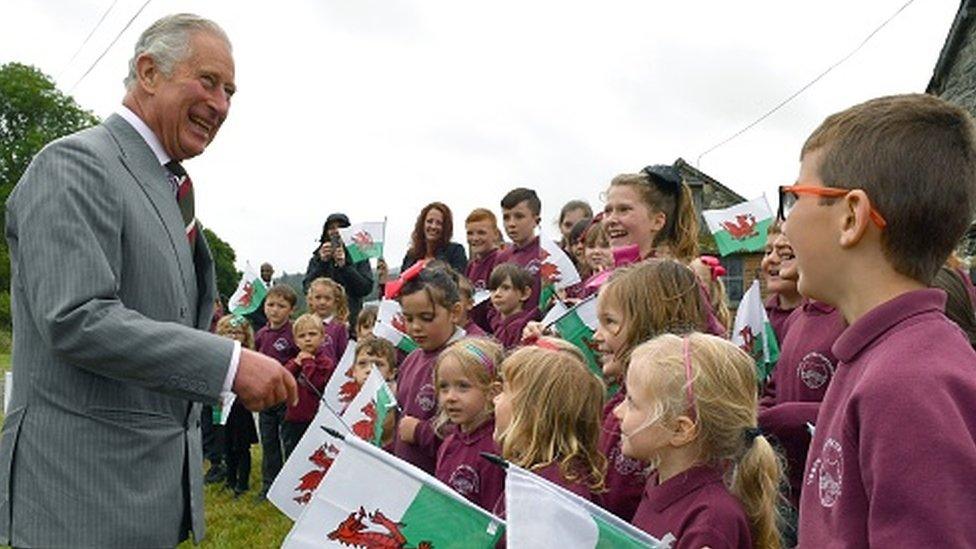
King Charles visited Wales often when he was Prince of Wales
Charles became Prince of Wales aged just nine, six years after his mother's accession to the throne on 6 February 1952.
He found out about his new title through a TV broadcast made by the Queen from Cardiff Arms Park in July 1958 during the closing ceremony of the-then Empire Games.
He later recalled the "horror and embarrassment" he felt watching TV with his classmates at Cheam School, his preparatory school in Berkshire.
"To my total embarrassment I heard my Mama's voice - she wasn't very well at the time and could not go," he told guests at an event at Caerphilly Castle in 2008.
"My father went instead and a recording of the message was played in the stadium saying that I was to be made the Prince of Wales.
"All the other boys turned around and looked at me and I remember thinking: 'What on Earth have I been let in for?' That is my overriding memory."
His struggle with the role continued when he was sent to Aberystwyth University in Ceredigion for a term to learn more about Wales and the Welsh language in the months leading up to his investiture.
It was a "difficult" time and Welsh historian Prof Peter Stead once described it as "unimaginative politicians... straitjacketing him in to their own concept of Welshness".
"It remains to his eternal credit that he didn't walk away from the job at hand as several of his immediate predecessors in the job would certainly have done," Prof Stead added.
His investiture as Prince of Wales when he was 20 was attended by some 4,000 people at Caernarfon Castle in Gwynedd in July 1969 and millions watched on TV around the world.
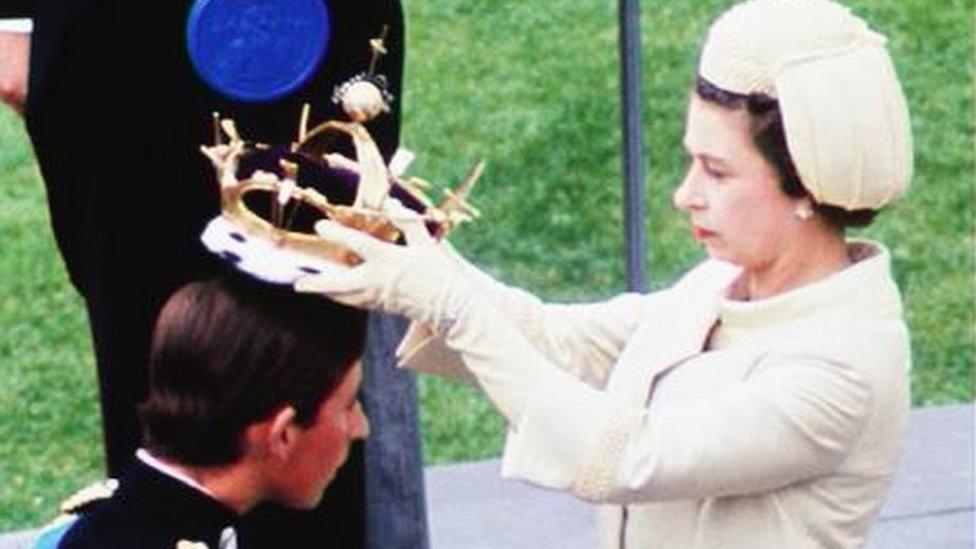
Prince Charles was invested at Caernarfon Castle aged 20
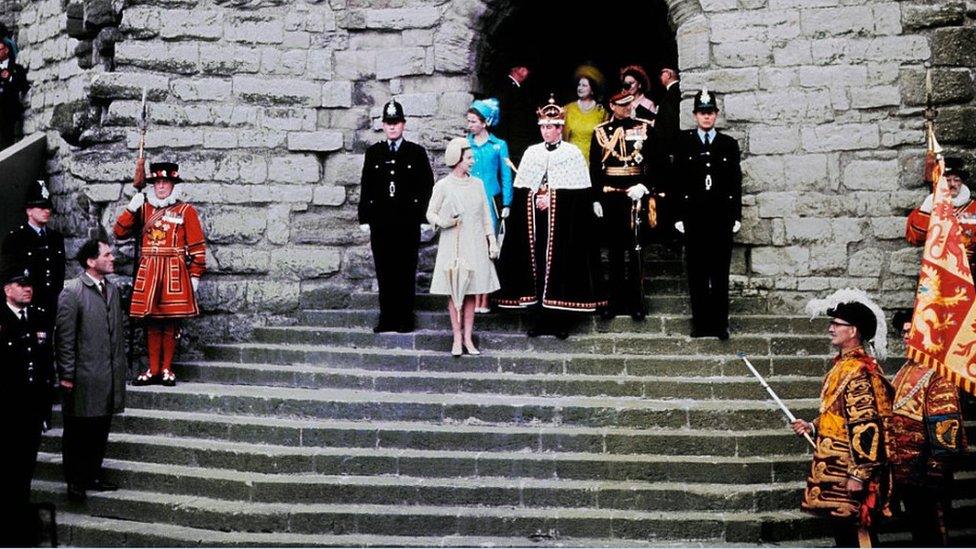
There were protests around Prince Charles' investiture at Caernarfon Castle
The ceremony shone a spotlight on the small town in the shadow of Snowdonia's mountains and was also a period that caused huge divisions in the country, culminating with a bombing operation by underground political group, Mudiad Amddiffyn Cymru (Movement for the Defence of Wales).
Two members were killed as they planted a bomb outside government offices in Abergele on the eve of the investiture.
While some people welcomed the ceremony - held in the Welsh-speaking heartlands - many others felt it to be a symbol of the oppression and conquest of Wales.
This feeling was not helped by a ceremony that was "out of its time", according to Mr Jones.
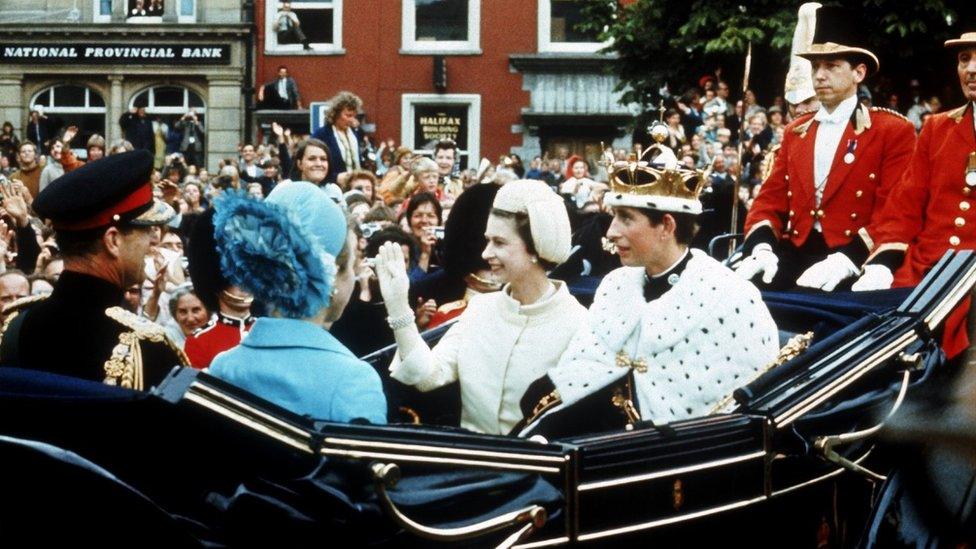
Crowds of people lined the streets of Caernarfon after the investiture
"The 1960s was a period that was out of sympathy with pomp and circumstance," he said.
"People were dressing differently, people were wearing their hair differently. There had been a cultural shift.
"The investiture ceremony seemed to many people of that time to be a throwback to some age that we thought had gone.
"It's not surprising to learn that, in many respects, Prince Charles was quite uncomfortable with aspects of all of this."
He said it created a "divided response" which was "hugely difficult" for the Prince of Wales to overcome.
But at the same time it helped spark change in the Royal Family, with the 1970s heralding a period of modernisation for the monarchy.
"There was more emphasis in the monarchy on 'meet the people' kind of visits, being supportive to people," added Mr Jones.
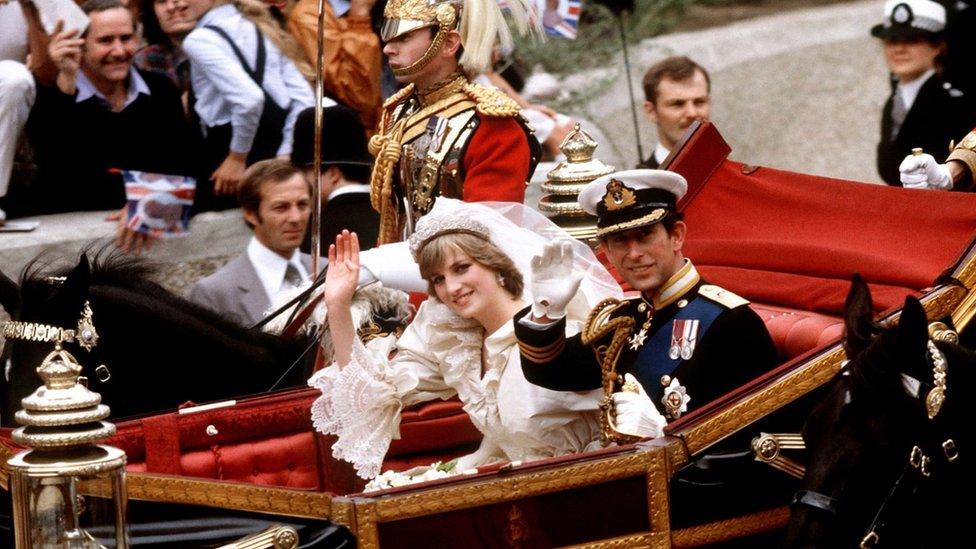
The wedding of Prince Charles and Princess Diana was watched by millions all over the world
Over the decades, Charles' commitment to Wales increased his popularity but it was his marriage to Princess Diana which really captivated the country.
"Clearly both before her death and for many years after her death, the fact that she was Diana, Princess of Wales, gave Wales an international profile which was not available in any other way," said Mr Jones.
"She really was a global celebrity and a global presence... And so the investiture's original purpose of perhaps making Wales visible in the eyes of the world was finally accomplished through Diana, Princess of Wales."
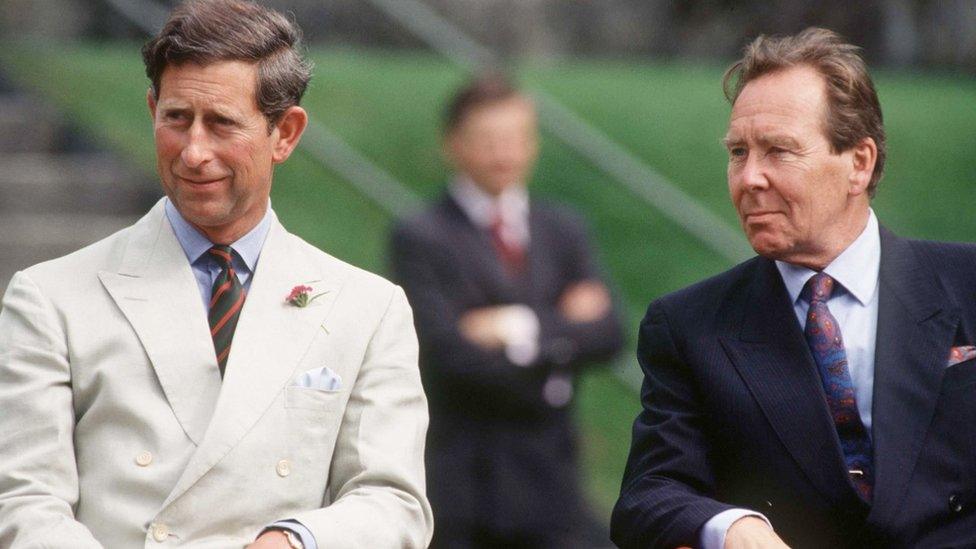
Prince Charles and Antony, Earl Of Snowdon, during a garden party at Caernarfon Castle in July 2001
At the turn of the millennium, the then-Prince of Wales revived the traditional role of Official Harpist.
Catrin Finch, then a student at the Royal Academy of Music, was to be his first.
"What he tried to do with establishing the role [was] support someone from Wales - a harpist, cultural history with the instrument and the amazing traditional and contemporary music we have - he's always keen to push that," she said.
Journalist Emily Nash, who accompanied the Prince on tours many times, said his long apprenticeship as Prince of Wales meant his strong bond with the county would not change now that he is sovereign.
"You only have to look at what he did on the ground in Wales - what he did as Prince of Wales - in terms of regeneration, environmental issues, his Pub is the Hub initiative - it's a shame that he probably won't be able to have as much input in those schemes as he did in the past," she said.
She thinks the new monarch will be in Wales often and people will "continue to see him here regularly".
In 2007, Llwynywermod estate in Myddfai, Carmarthenshire, was purchased by the Duchy of Cornwall as a residence for Prince Charles.
"He's very fond of his home in Wales and likes to come here privately to escape the spotlight on his own terms, so I'd imagine that that will continue," Ms Nash said.
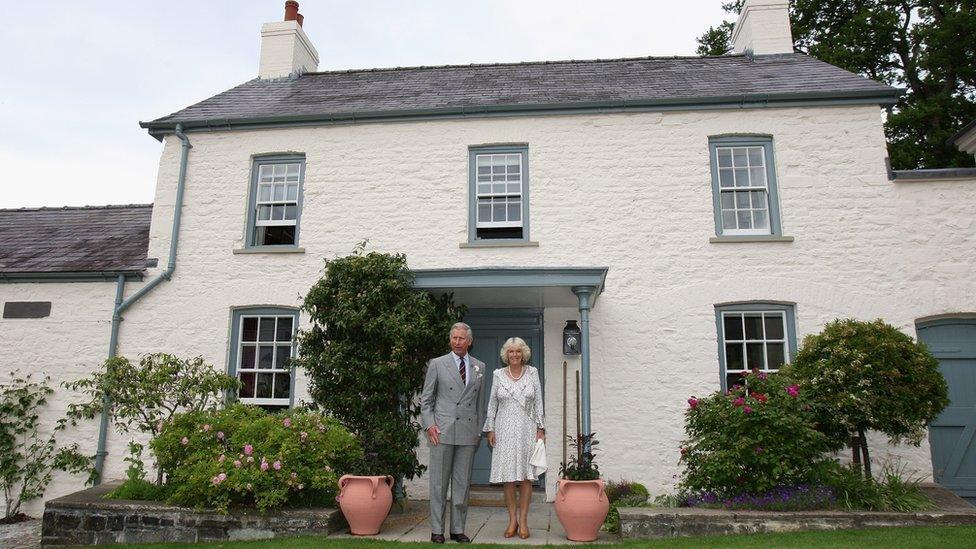
Prince Charles and the Duchess of Cornwall stayed in their Carmarthenshire home Llwynywermod on their visits to the country
Farmer Emlyn Morgan said King Charles had been "a great ambassador to this part of the world".
"He's been very supportive of everything, he's been made patron in a lot of organisations in the area... everybody liked him."
He said his visits to church on a Sunday followed by a cup of tea at a nearby cafe were always low key.
"Nobody made a fuss of him.... there would be one man [security staff] with him."
Carol Dyer, chairwoman of Myddfai Community Council, was given the role of introducing him to the community when he first visited.
"I was so impressed at the way he could speak to everybody about everything and if he had met them before he always remembered that he had met them," she said.
Resident, Fiona Walker, said: "I have found him incredibly kind, considerate, full of knowledge. I have great admiration for him and I know he's going to be a wonderful king.
"Maybe we'll see less of him but we hope not."
Former Plaid Cymru leader and Senedd presiding officer, Lord Dafydd Elis-Thomas, who has known Charles "very well" since the pair were at Aberystwyth University together, is in no doubt that the new King will be just as much committed to Wales as when he was the country's prince.
"Within the Royal Family the Prince of Wales has probably been the most Welshophile of the non-native princes throughout our history," he added.
Mr Jones, who has also met the new monarch on a number of occasions, agreed: "He takes various Welsh causes very seriously.
"I know that when he was involved with the University of Wales that it was something that he took immensely seriously.
"Over the years it's seemed to me that despite the personal issues that have plagued the Royal Family, that probably Charles will be as popular as his mother was."
- Published16 October 2018
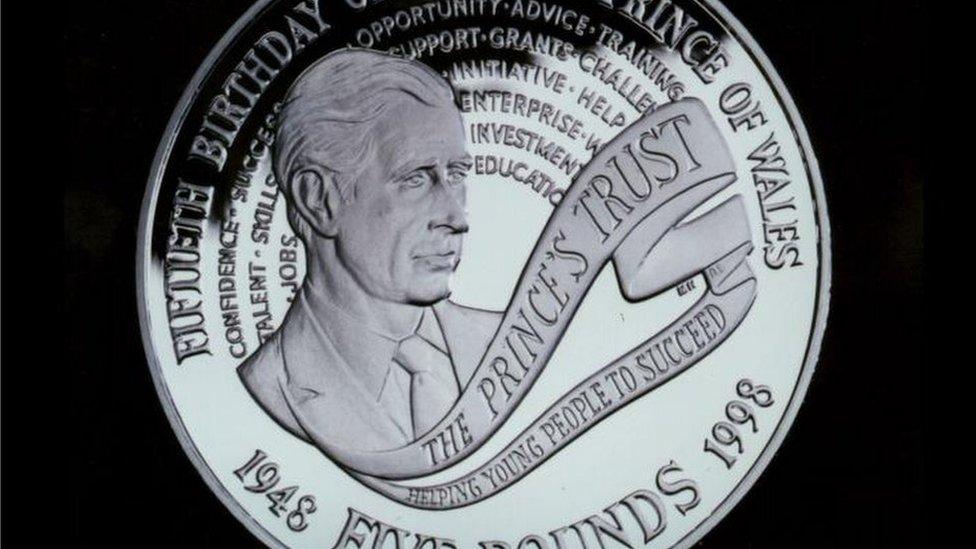
- Published9 September 2017
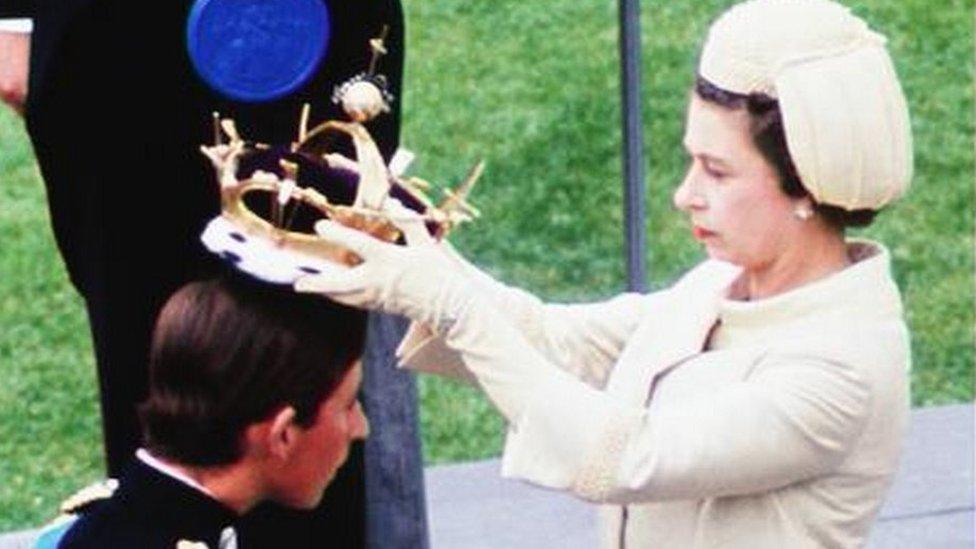
- Published9 July 2017
